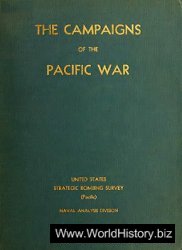The Virgin Queen who reigned over a golden age, paving the way for the British Empire
She was known by several names - the Virgin Queen,
Good Queen Bess, Gloriana - and the legacies of Queen Elizabeth I are many, but of all the ways that she changed the world, there is one episode of her life in particular that stands out. It was the summer of 1588, and having been angered by his 'heretic', 'illegitimate' sister-inlaw Elizabeth I, the Protestant ruler who succeeded the English throne at 25 years old after his wife Mary I died, the Catholic King Philip II of Spain invaded England with a great fleet of 22 galleons and over a hundred armed merchant ships.
The attack of the Spanish Armada marked the beginning of an unofficial war between England and Spain that had been brewing for years. Releasing England from the Catholic Church re-imposed on it by Philip II and his late Queen Consort, Elizabeth I had not only resurrected the Protestantism that the Spanish rulers sought to quash, she had gone on the year before to formalise treaties with Protestant rebels in the Netherlands. For a King who wanted to remove all trace of Henry VIII's assault on Catholicism, it was galling to see his daughter Elizabeth solidify Protestant power in Europe.
Meanwhile, pioneers of her realm like Sir Francis Drake were undertaking expeditions of exploration, making enemies of the Spanish as they did so. Philip II was said to have put a price of 20,000 ducats (around ?4/$6.5 million) on Drake's head for his piracy against Spanish vessels. Spanish animosity had built to breaking point while Elizabeth I was building the beginnings of what would later become the British Empire, all while
Supporting artists, thinkers and writers like William Shakespeare and Christopher Marlowe at home, and leading a golden age for the arts and sciences.
Highly intelligent and very well educated, Elizabeth I surrounded herself with people she could trust and built strong relations with her people that fostered a sense of solidarity. As the Church was breaking apart in Europe and monarchs wrestled for power, Elizabeth I stood for Protestantism while still honouring English Catholics by preserving some of their practises. She gave a sense of identity to England at the point preceding its global dominance.
And on 18 August 1588, about a week after her navy routed the Spanish Armada at the Battle of Gravelines, chasing it up to the Scottish coast, Elizabeth I gave one of the world's most famous speeches to the troops at Tilbury, a force of 4,000 who were standing by ready to defend the Thames Estuary against any attempt to take London. She promised to take up arms herself against any prince of Europe, and declared: ”I know I have the body of a weak and feeble woman, but I have the heart and stomach of a King."

Victoria




 World History
World History









